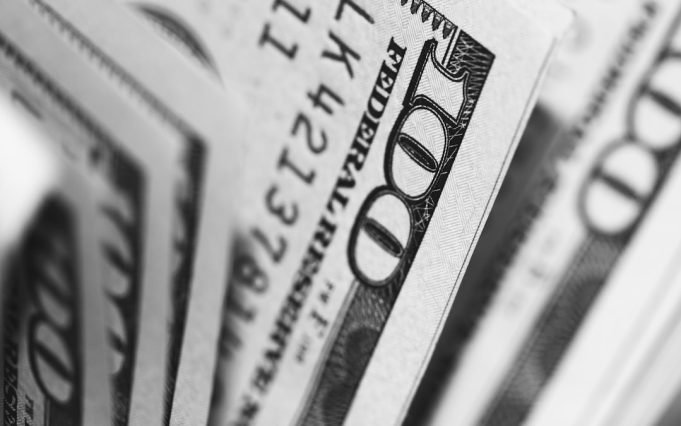The Forex Trading Landscape and Big Players
The foreign exchange (Forex) market is the world’s largest and most liquid financial market, involving trillions of dollars in daily transactions. Big banks are significant players in this massive ecosystem, commanding a substantial share of the market and influencing currency valuations. Understanding how these financial powerhouses navigate the turbulent waters of forex trading offers valuable insights into the dynamics of this global market.

Image: www.forex.academy
Big banks are not simply retail currency brokers; they operate on a vastly different scale, employing sophisticated strategies and leveraging their extensive resources to extract profits from currency fluctuations. Their trading desks are staffed with teams of experienced traders, analysts, and risk managers who monitor the markets around the clock, seeking opportunities to capitalize on even the slightest price movements.
Over-the-Counter Trading: Beyond the Exchanges
Unlike stocks and bonds traded on centralized exchanges, the majority of forex trading occurs over-the-counter (OTC) through interbank networks. Big banks establish relationships with other banks, brokers, and institutional investors, creating a庞大的network for trading currencies. This network allows banks to execute large-volume trades directly with each other, bypassing the need for intermediaries and avoiding the potential slippage and price manipulation that can occur on exchanges.
The Interbank System: A Key Market Mechanism
The interbank system plays a pivotal role in facilitating forex trading between big banks. It provides a platform for banks to exchange currencies at negotiated rates, enabling them to balance their books, manage liquidity, and hedge against currency risk. The interbank system operates in multiple layers, with larger banks acting as market makers and providing liquidity to smaller banks and non-bank participants.
Profiting from Currency Spreads
One of the primary ways big banks profit from FX trading is through the bid-ask spread. The bid-ask spread refers to the difference between the price a bank is willing to buy a currency (the bid price) and the price it is willing to sell a currency (the ask price). Big banks capitalize on the spread by buying currencies at the bid price and selling them at the ask price, pocketing the difference. The volume of currency they trade, combined with their ability to lock in tight spreads, translates into substantial profits.

Image: www.forex.academy
Hedging and Risk Management: Mitigating Volatility
Beyond profit-making, big banks also use forex trading as a risk-management tool. Many corporations and institutional investors need to exchange currencies to conduct international business or invest in foreign assets. Big banks provide hedging services to these clients, allowing them to mitigate the risk of currency fluctuations by locking in exchange rates in advance.
The Impact of Big Banks on Forex Volatility
Due to their significant market share and trading volumes, big banks have a profound influence on forex volatility. Their trades can move currency prices and create short-term fluctuations in the market. However, their presence also contributes to the overall stability of the forex market by providing liquidity and acting as counterparties in hedging transactions.
Tips for Forex Trading Success
Master Risk Management: Forex trading carries inherent risk. Always employ sound risk management practices, such as setting stop-loss orders and using leverage judiciously.
Leverage: Leveraged trading can amplify both profits and losses. Use leverage cautiously and ensure you have a firm understanding of the risks involved.
Continuous Education: The forex market is constantly evolving. Stay abreast of the latest economic news, central bank announcements, and technical indicators to make informed trading decisions.
FAQs on Forex Trading for Big Banks
Q: What are the major currencies big banks trade?
A: The most traded currencies are known as Majors: the US Dollar (USD), the Euro (EUR), the Japanese Yen (JPY), the British Pound Sterling (GBP), and the Swiss Franc (CHF).
Q: How do big banks determine the value of currencies?
A: Banks consider various factors, including economic indicators, central bank interest rates, geopolitical events, and market sentiment, to assess currency values.
Q: Do big banks manipulate the forex market?
A: It is widely believed that large banks can influence short-term currency movements. However, outright manipulation is forbidden and subject to regulatory scrutiny.
How Do Big Banks Trade Forex
Conclusion
The inner workings of the financial world can be fascinating, and diving into the forex trading strategies of big banks is both educational and insightful. By employing sophisticated risk-management techniques, leveraging their extensive networks, and capitalizing on currency spreads, big banks navigate the complexities of the forex market, shaping its dynamics and influencing global currency valuations. Understanding these strategies and incorporating their lessons into your own trading approach can help you make more informed and potentially profitable decisions in this ever-evolving financial landscape.
Are you curious to explore the nuances of big bank forex trading further? Share your thoughts and let’s delve deeper into this intriguing topic together.






